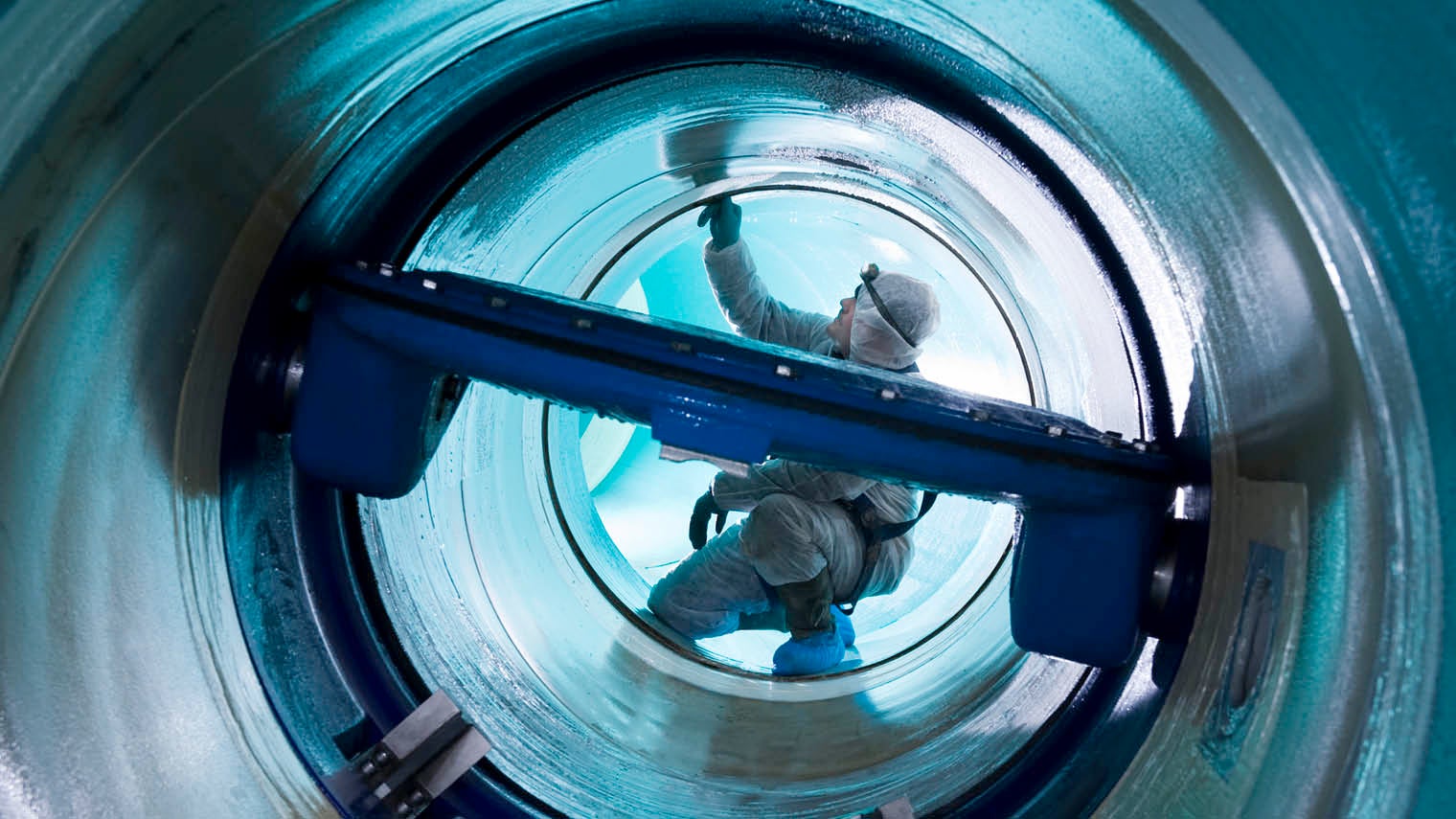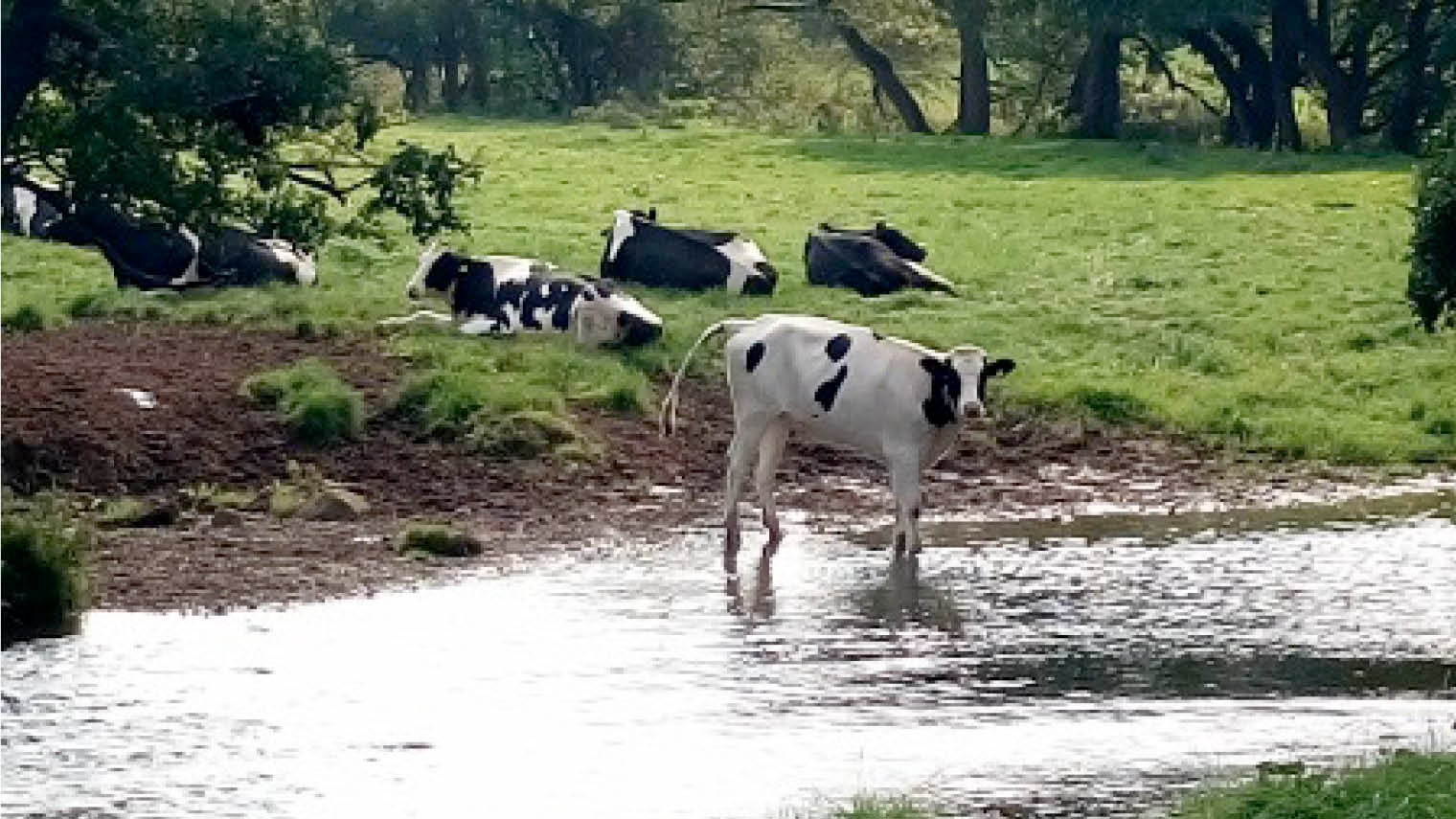Delivering resilient water and wastewater services is no simple task. In the UK we like to joke about our rainy weather, but in reality rainfall is patchy, too much in some areas and not enough in others.
The biggest challenge in some parts of the country is meeting high demand from large populations, while in others, periodically, it can be dealing with oversupply in the form of flooding. Farming, urban development and freak weather events all contribute to the challenge.
Joining together processes to deliver an efficient service that works for everyone
For United Utilities, the UK’s largest listed water company providing services in the North West of England, the job involves a constant programme of building resilient systems, managing large catchments of land and joining together processes to deliver an efficient service that works for everyone.
“Our business provides water for consumption, deals with waste and produces energy,” says chief executive Steve Mogford. “Today we view this as all part of one big system; it’s a way of thinking that has created a lot of fresh ideas to meet the needs of our customers and the environment.”
United Utilities runs nearly 100 water treatment works in the North West. New technology allows it to act in real time to respond to the fall-out from a storm or contamination incident that puts supplies at risk for example, whereas previously this would have taken a matter of days.
“Sensors and analytics help us manage information more efficiently,” says Mr Mogford. “We now know a lot more about the impact of weather on sewer systems and can mitigate the ill-effects. We can predict issues before they arise, whereas historically companies like ours relied on customers to tell them when a problem occurred.”
In 2013, United Utilities completed the West-East Link, an aqueduct running between Manchester and Liverpool, which can transport water from one city to the other depending on need. Meanwhile, at the other end of the process, it has invested in a production control system capable of handling large-scale sludge waste and converting it into energy.

Inside the WestEast Link aqueduct running between Liverpool and Manchester
“It all comes down to how we can best use our assets,” says Mr Mogford. “We think like a manufacturer and we pay close attention to what other industries do, so we can apply best practice to our business. We benefit enormously from bringing in people with experience of other sectors.”
In this new era of innovative thinking, partnership is essential. United Utilities must meet strict rules from the Environment Agency on river water quality, while at the same time managing flood risk and protecting water resources. It’s a challenge best met via a collaborative approach.
“Within a large river geography, no single plan really covers all of these needs, so we trialled a new approach,” explains Jo Harrison, director of asset management. “We took a catchment area in Cumbria and brought together a range of data from several third-party sources to create a model.
“It has revealed a range of issues that hadn’t been seen before. It will allow us to optimise the level of investment at treatment works and consider other interventions to improve water quality, working in partnership with Lancaster University, the Rivers Trust and Carlisle City Council. Working with local farms, we can heighten river quality, while protecting our water sourcing. What we learn here can be rolled out to new areas.”

Working with farmers to reduce the risk to river water quality
Applying systems-thinking to water catchments enables United Utilities to move beyond focusing exclusively on upgrading its own assets to work with others and arrive at better, more holistic solutions with wide-ranging benefits.
Another example is its programme of tree planting in urban areas to prevent large amounts of rainwater flooding sewers. It partnered with Salford-based organisation City of Trees, as well as Salford City Council, Urban Vision and others, to plant trees in specially designed paving.
During a storm, the trees slow the torrent of water flowing directly into drains. Initial results of the pilot scheme revealed that tree pit systems “soaked up” the rainfall and reduced peak storm flow by up to 50 per cent. It has been hailed as a natural solution to urban flooding that could be rolled out across the country.
“This has a range of wider benefits that go beyond water, including environmental, health and wellbeing. At the heart of this is the principle that working with others can maximise the efficacy of our investments in the area,” says Ms Harrison.
All of this work is brought together in the business’s new Integrated Control Centre (ICC), located in Warrington. It collates information streaming in from plants, customers and remote teams. The ICC is fuelled by technology and acts as a central point for directing operations.
“If you walk through the centre, you’ll see how much data we have at our fingertips. We know how many people are contacting us with problems to solve; we have access to rainfall data and can monitor the performance of our energy-generating operations,” says Mr Mogford.
“There’s a huge amount of information that tells us how we are performing as a business. Understanding how water is moving in the environment around us helps us build resilience to make sure water is available to all our customers.”
Alongside this large-scale investment in technology, people and processes, continuous engagement with its customers ensures their concerns are taken on board; for instance, the impact of new housing and transport infrastructure, which adds pressure to existing sewage systems, as well as the ongoing need for safe drinking water.
To help manage future incidents, United Utilities created what it calls Priority Services, an extensive support network for people in vulnerable circumstances such as health issues or financial constraints. As well as helping customers finding it difficult to pay their bill, the scheme, developed with input from the charity sector, provides additional assistance to customers during a severe weather event or a system failure.
“The feedback we have had from people has been really positive,” says Mr Mogford. “This involves daily visits and an additional layer of support to vulnerable people. It’s something we’re extremely proud of and we’re keen to progress it further.”
The job of keeping water systems flowing to keep the North West moving is one that never finishes, but by working smarter in a high-tech, collaborative environment, United Utilities aims to deliver on its promises to its customers, partners and to the environment.
For more information please visit www.unitedutilities.com


